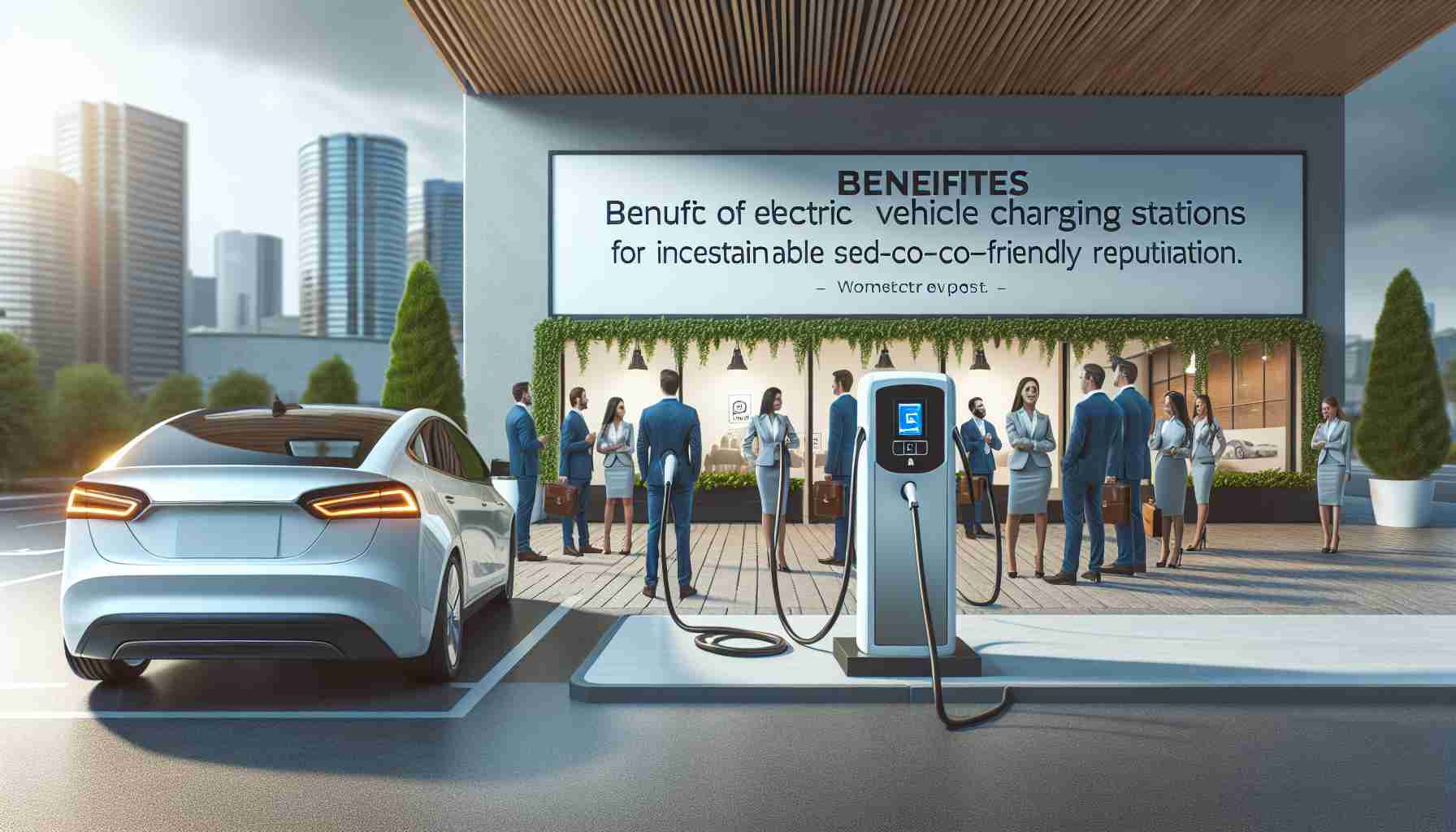
The Economic Perks of EV Charging Stations
Installing electric vehicle charging stations (EVCS) is not just an eco-friendly initiative; it can also significantly enhance local economies. Recent research from the Massachusetts Institute of Technology has unveiled fascinating insights into how these stations contribute to business growth, even in lower-income neighborhoods.
The study, published in the esteemed journal Nature Communications, analyzed economic data from over 4,000 charging stations alongside 140,000 business establishments across California. The results demonstrated a notable increase in consumer spending at businesses located near these charging points. Specifically, the installation of one station was linked to a 1.4% increase in spending in 2019, and 0.8% from January 2021 to June 2023. Notably, the presence of a charging station within 100 meters of attractions like restaurants or hotels amplified this effect, with spending surging by 2.7% and 3.2% during the same periods.
Furthermore, the research indicated that these charging stations draw in higher-income visitors as well as local residents. Particularly beneficial are these installations in disadvantaged areas, where they markedly uplift the local business scene.
According to the lead researcher, Zunhang Zheng, these increases in consumer expenditure could cover a substantial part of the installation costs for a charging station. This underscores the potential for diverse revenue streams and smarter business strategies in the rapidly growing EV market.
Unlocking Economic Growth: The Hidden Benefits of EV Charging Stations
The Economic Benefits of EV Charging Stations
The installation of electric vehicle (EV) charging stations (EVCS) is often touted for its environmental advantages, but recent studies have revealed a compelling economic narrative that underscores their importance in local community development. Particularly insightful is research conducted by the Massachusetts Institute of Technology (MIT), which highlights how EV charging stations can catalyze business growth, especially in economically disadvantaged neighborhoods.
Key Economic Insights
Research published in the journal Nature Communications analyzed over 4,000 charging stations alongside 140,000 businesses in California. The findings indicated that the presence of EV charging stations correlates strongly with an increase in consumer spending. Specifically:
– 1.4% Rise in Consumer Spending: A single EV charging station installation was linked to a notable increase in consumer spending in 2019.
– 0.8% Increase from Jan 2021 to Jun 2023: The trend continues, with businesses near charging stations seeing consistent growth during subsequent years.
– Higher Spending Near Attractions: The proximity of charging stations to popular destinations significantly amplifies consumer expenditure, with increases reaching 2.7% and 3.2% for businesses near restaurants and hotels, respectively.
Attracting Higher Income Visitors
Interestingly, the presence of charging stations does not just benefit local residents; they also attract higher-income visitors. This infusion of consumer spending can greatly support local businesses, particularly in lower-income areas where such investments can lead to a revitalization of the local economy and social landscape.
Cost-Benefit Perspective
Lead researcher Zunhang Zheng emphasized that the uptick in consumer spending could effectively alleviate a significant portion of the installation expenditures for new EV charging stations. This perspective is critical for local governments and businesses as they weigh the costs versus the prospective economic benefits of installing charging infrastructure.
Broader Economic Trends and Innovations
The integration of EV charging stations aligns with broader trends in the EV market. As the switch to electric vehicles gains momentum due to environmental mandates and technological advancements, the demand for charging infrastructure is expected to escalate. Innovations in charging technology, such as faster charging solutions and renewable energy-powered stations, further underline the potential growth within this sector.
Challenges and Limitations
However, there are challenges associated with the proliferation of EV charging stations. These can include:
– Initial Installation Costs: While increased spending can cover some costs, the initial outlay can be significant for local businesses and city budgets.
– Site Selection: Optimal placement is crucial; not all locations will see the same consumer turnout.
– Maintenance and Upkeep: Continuous operation and maintenance of these stations require planning and resources.
Conclusion
As governments, businesses, and communities look to enhance their infrastructure, the strategic installation of EV charging stations proves to be a promising investment. The economic benefits together with the environmental advantages create a compelling case for expanding this infrastructure, especially in economically disadvantaged areas. For more information on sustainable practices and innovative solutions in the EV sphere, visit Electric Vehicle Institute.
Future Projections
Moving forward, trends indicate that the growth of electric vehicles will only increase the relevance of EV charging stations as vital components of urban infrastructure. As cities begin to prioritize green investments, the ongoing decrease in installation costs, alongside increasing expenditure from consumers, is likely to lead to a robust economic uplift in areas surrounding these facilities.
By staying ahead of these trends, local economies can position themselves to derive maximum benefits from the electric vehicle revolution.



